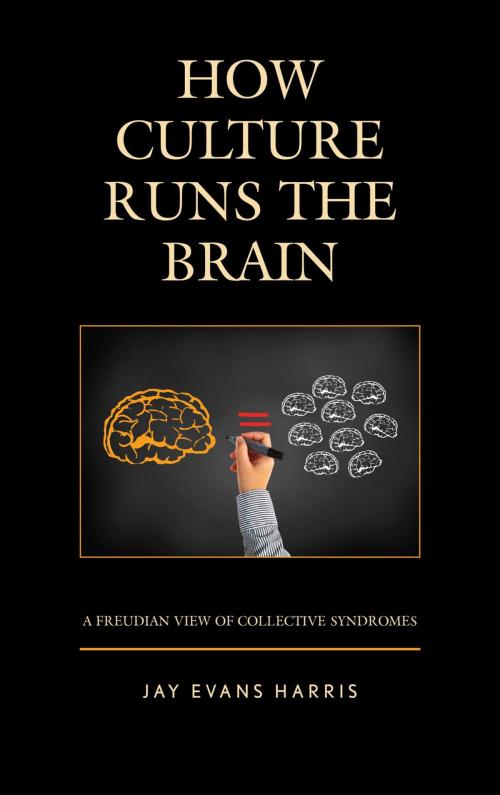How Culture Runs the Brain
A Freudian View of Collective Syndromes
Nonfiction, Health & Well Being, Psychology, Psychoanalysis, Counselling, Psychotherapy| Author: | Jay Evans Harris | ISBN: | 9781498562461 |
| Publisher: | Lexington Books | Publication: | July 31, 2017 |
| Imprint: | Lexington Books | Language: | English |
| Author: | Jay Evans Harris |
| ISBN: | 9781498562461 |
| Publisher: | Lexington Books |
| Publication: | July 31, 2017 |
| Imprint: | Lexington Books |
| Language: | English |
Freud was right: mind and brain evolved together, adapting progressively to cultural change; responding regressively to wars, genocides, and forced migrations. Freud traced innate conflicts between pleasure and aggression in each stage of individual development to corresponding development in cultural stages. Cultural trauma that induces PTSD with a loss of secure identity in one generation induces collective phantasies (mythologies) among succeeding generations, and this may form cultural syndromes of revenge and restitution. Families, tribes, clans, and religious communities can regress together to infant and childhood stages. They may breed heroes, sociopaths, revolutionaries—or potential terrorists vulnerable to the siren call of internet shamans.
How Culture Runs (and sometimes ruins) the Brain presents neuroscience findings, revealing fantasy as the brain’s default mode, as it alters identity during unbearable trauma or loss. The book presents case histories of cultural conflicts among individuals, tribes, and nations, using the examples of the Boston Marathon Bombers, Bowe Bergdahl’s iconic trial, the Orlando Shooter, and regressive American players in the election of 2016. Conflicting forms of cultural narcissism determine economic survival: the immature narcissism of Trump and his followers challenges the mature narcissism that hid Hillary Clinton’s hubris. Immature narcissistic oligarchs can act out their economic dominance to deal with the fear of extinction of their own identity. Some terrorists groups use mature global technology in the service of immature fundamentalist identity.
Freud was right: mind and brain evolved together, adapting progressively to cultural change; responding regressively to wars, genocides, and forced migrations. Freud traced innate conflicts between pleasure and aggression in each stage of individual development to corresponding development in cultural stages. Cultural trauma that induces PTSD with a loss of secure identity in one generation induces collective phantasies (mythologies) among succeeding generations, and this may form cultural syndromes of revenge and restitution. Families, tribes, clans, and religious communities can regress together to infant and childhood stages. They may breed heroes, sociopaths, revolutionaries—or potential terrorists vulnerable to the siren call of internet shamans.
How Culture Runs (and sometimes ruins) the Brain presents neuroscience findings, revealing fantasy as the brain’s default mode, as it alters identity during unbearable trauma or loss. The book presents case histories of cultural conflicts among individuals, tribes, and nations, using the examples of the Boston Marathon Bombers, Bowe Bergdahl’s iconic trial, the Orlando Shooter, and regressive American players in the election of 2016. Conflicting forms of cultural narcissism determine economic survival: the immature narcissism of Trump and his followers challenges the mature narcissism that hid Hillary Clinton’s hubris. Immature narcissistic oligarchs can act out their economic dominance to deal with the fear of extinction of their own identity. Some terrorists groups use mature global technology in the service of immature fundamentalist identity.















